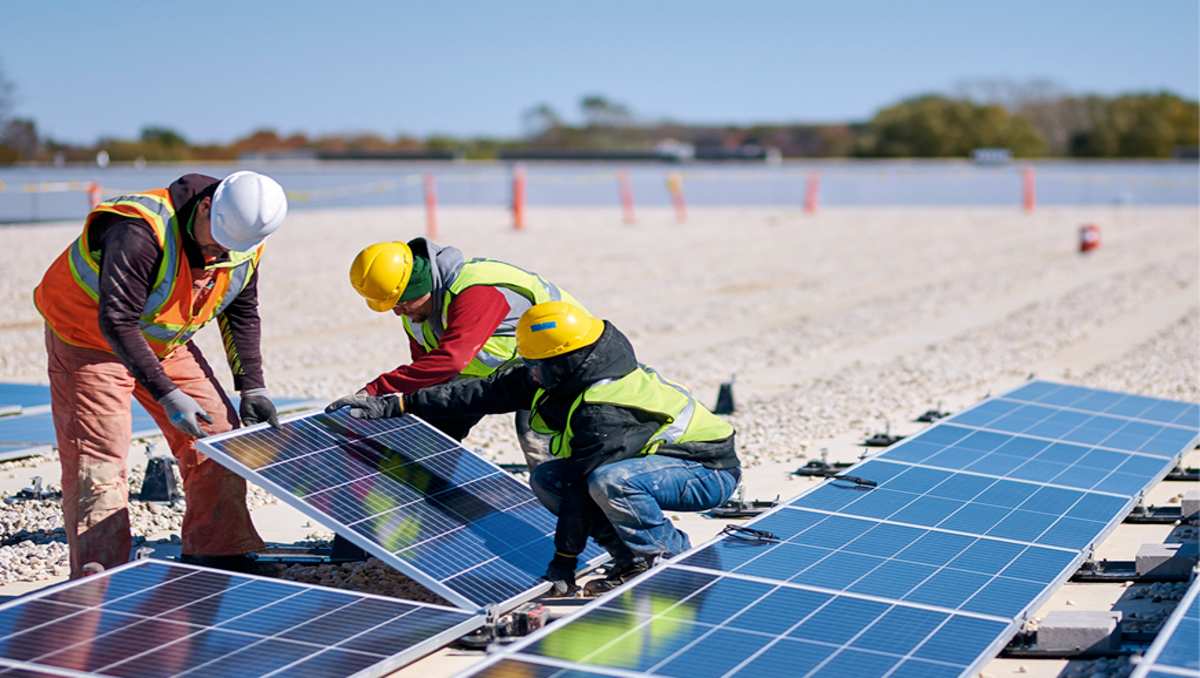The Full Overview to Solar Energy Installment: Conserve Cash and Go Green
Discovering the nuances of solar power installment reveals a complex method to both cost savings and environmental responsibility. Homeowners are increasingly considering solar power not only as a practical alternative but as a calculated financial investment that can yield considerable long-term benefits. However, the procedure entails mindful factor to consider of various aspects, including system selection and installment procedures. Comprehending these elements is critical for taking full advantage of performance and financial savings. What details actions should one take to make sure an effective transition to solar power, and just how can monetary rewards further improve this venture?
Benefits of Solar Power
The expanding adoption of solar energy mirrors a significant change towards sustainability and environmental responsibility. One of the key benefits of solar energy is its ability to minimize dependence on fossil gas, bring about reduced greenhouse gas discharges. By utilizing the sun's power, individuals and companies can add to a cleaner environment and reduce the unfavorable impacts of environment adjustment.
Moreover, solar power can lead to considerable monetary cost savings. As soon as set up, solar panels significantly lower power expenses, as they produce power from an eco-friendly resource. Several governments additionally use rewards, rebates, and tax credit ratings to encourage solar fostering, further boosting financial practicality.
One more notable advantage is power independence. Solar energy systems enable homeowners and organizations to generate their own electricity, decreasing susceptability to fluctuating energy rates and supply disruptions. Furthermore, solar power systems require very little upkeep, translating to reduced long-term operational costs.
Choosing the Right Solar System

Solar systems differ dramatically in price depending on their type, size, and efficiency. Consider prospective financing choices such as lendings, leases, or power purchase arrangements (PPAs) that might ease upfront prices.
Offered area is an additional crucial variable. Evaluate your roof covering's orientation, angle, and shading, as these components can affect photovoltaic panel performance. If roofing room is limited or improper, ground-mounted systems might be a feasible choice.
It's necessary to perform complete research to comprehend the specific incentives available in your area, as they can vary widely. Consulting with a solar installment expert can aid you browse these options properly, ensuring you maximize your savings while adding to a much more lasting power future.
Preserving Your Solar System
Efficient upkeep is essential for making sure the longevity and ideal performance of your solar power system. Routine maintenance can help avoid small problems go to website from intensifying right into costly repair work and make certain maximum power effectiveness.
Begin with routine inspections of your solar panels, ideally every six months. Cleaning the panels, especially in areas prone to dust or bird droppings, can significantly improve energy manufacturing.
Following, monitor the inverter. This element transforms solar power into functional electrical power and need to be checked monthly. A lot of modern-day inverters have checking systems that notify you to performance problems, enabling timely treatment.
In addition, evaluate the circuitry and connections for any type of signs of deterioration or damages, as these can result in decreased performance or system failing. Consider specialist maintenance solutions annually for a comprehensive exam.
Verdict
Finally, the fostering of solar energy offers significant advantages, including lowered electrical power costs and a positive ecological effect. Cautious factor to consider in selecting the appropriate solar system, paired with a clear understanding of the installment procedure, improves the total experience. Financial rewards and regular maintenance better add to the lasting benefits of solar power. Eventually, welcoming solar innovation stands for a vital action toward sustainability and energy freedom, cultivating a greener future for all.